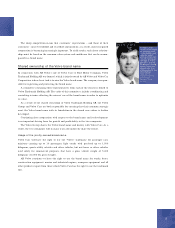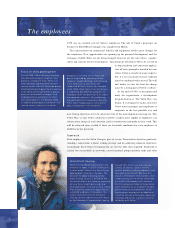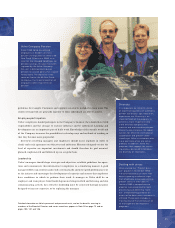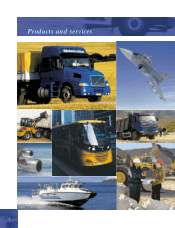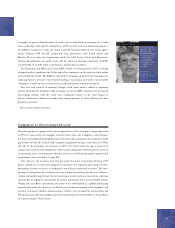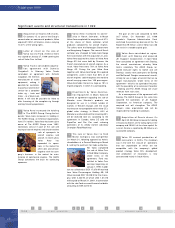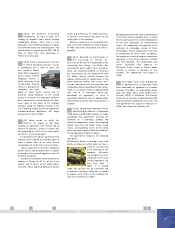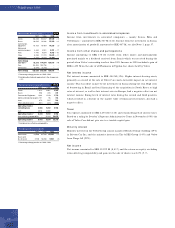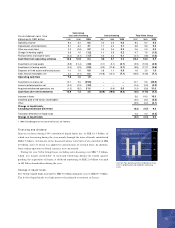Volvo 1999 Annual Report Download - page 21
Download and view the complete annual report
Please find page 21 of the 1999 Volvo annual report below. You can navigate through the pages in the report by either clicking on the pages listed below, or by using the keyword search tool below to find specific information within the annual report.
19
examples of greater liberalization of trade can be identified in emerging free trade
areas, in Europe, through the enlargement of EU, as well as in Asia and Latin America.
In addition, barriers to trade are being removed through bilateral free trade agree-
ments. During 1999 the EU negotiated such agreements with South Africa and
Mexico. Next in line are negotiations with the Gulf States, Chile and Mercosur1.
Further liberalization of world trade will be achieved through expansion of WTO
membership to include China and Taiwan, among other markets.
The Economic and Monetary Union, EMU, which was introduced in 1999, is causing
changed market conditions for Volvo and other companies in the industry both inside
and outside the Union. The EMU is expected to stimulate growth in the economies by
reducing barriers to trade. Cross-border trading is increasing, and with it the need for
transports – which in turn results in increased demand for transport products.
The rate and pattern of demand changes with short notice, which is imposing
greater demands for flexibility. The economic cycles in EMU countries are becoming
increasingly similar, with the result that companies cannot to the same degree as
before redistribute volumes of production among nations, to those offering the best
prospects for sales.
1Argentina, Brazil, Paraguay and Uruguay
Integration of Volvo’s acquired units
From having been a group with various operations, Volvo changed strategic direction
in 1994 to concentrate on transport vehicles. Since then, the Company’s core business
has been strengthened through purchases of stock and acquisitions of companies while
operations outside the vehicle and transport-equipment business were divested. With
the sale of the passenger car business in 1999, the entire Volvo Group is focused on
commercial vehicles and equipment. Volvo ranks among the world leaders in most of
its operating areas, with positions that have been created through organic growth and
acquisitions. (See also Note 2, page 60)
Volvo Buses is the business area that has made the most acquisitions. During 1999
Buses carried out an intensive program to integrate the acquired units with its other
operations in order to create a coordinated and efficient industrial structure. The inte-
gration is taking place in a number of areas: design, purchasing, production, adminis-
tration and marketing strategy. In the purchasing sector work was focused on reducing
the number of suppliers and number of articles purchased, with very favorable results.
During the year Buses’ purchasing functions were coordinated in a global purchasing
organization with the objective of dealing in a common manner with suppliers and
internal customers. Within administration, effiency was reached by having both the
Northamerican and Asian production units report directly to Volvo Buses’ head offices
to a greater degree than before.
My view of Volvo
Ulla-Greta
Fundberg
Materials Control,
Volvo CE,
Eskilstuna, Sweden
It was a correct
decision that the
Group is now
based on a core of
heavy m achinery
and the future
feels exciting.
Although I think
it’s sad that we
left Cars.


